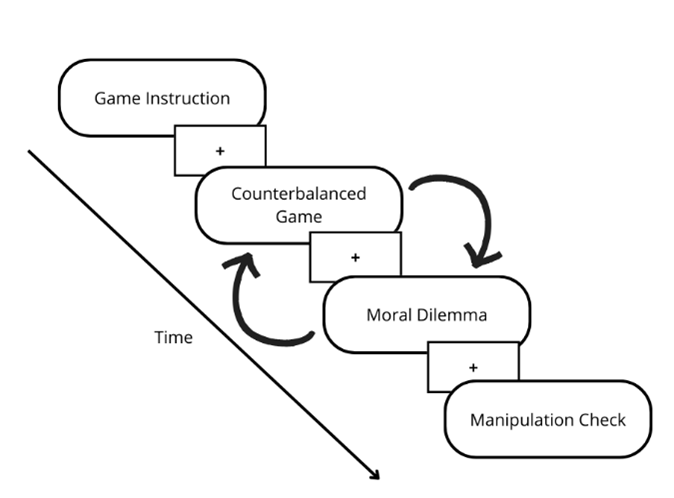The Impact of Executive Function Games in Moral Decision
DOI:
https://doi.org/10.17083/x0dd2228Keywords:
serious game, executive function, dual process model, moral decision, reaction timesAbstract
According to the dual process model, moral decision making speed is influenced by cognitive sources. However, there has been a lack of studies examining moral decision reaction times across cognitive dimensions and genders using a modern approach. Unlike previous research that relied on cognitive assessments, this study employed a game-based approach. This study investigated whether inhibitory control, cognitive flexibility, and working memory games affect the reaction times of moral decisions across genders. Its purpose was to examine differences in moral decision reaction times between men and women under different executive function game conditions. A factorial mixed-design experiment was conducted, with the experimental group engaging in game-based stimulations and the control group performing a dot task comparison. A total of 61 law students participated. Our findings indicated overall no differences between groups and genders, however differences in reaction times were observed across cognitive game and gender. This study advances the state of the art by combining serious-games stimulation for executive function with timeline-presented moral stories. The finding provides a new understanding of serious game applications in both mental chronometry and moral studies within dual process framework.

Downloads
Published
Issue
Section
License
Copyright (c) 2025 Hartanto, Sri Kusrohmaniah, Bhina Patria; Djoko Budiyanto Setyohadi

This work is licensed under a Creative Commons Attribution-NonCommercial-NoDerivatives 4.0 International License.
IJSG copyright information is provided here.